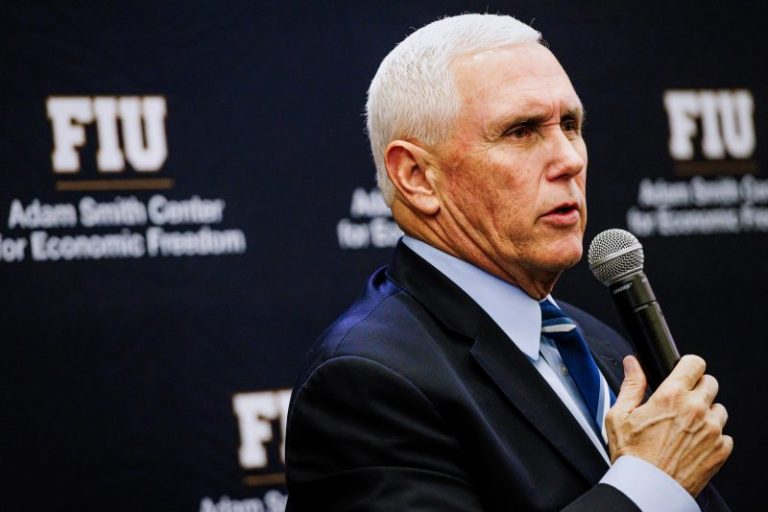Former vice president Mike Pence will fight a subpoena from special counsel Jack Smith in his investigation of former president Donald Trump’s push to overturn the 2020 election, a person familiar with the matter said, escalating an unprecedented judicial battle.
Pence’s team is expected to argue that his role as president of the Senate during his time in office means that, under the Constitution’s “speech or debate clause,” he does not have to testify, said the person familiar with the matter who spoke on the condition of anonymity to reveal internal deliberations. Pence’s team had been in negotiations with Smith for potentially limited cooperation before being served last week with the subpoena, which Pence’s side is said to have viewed as a surprise.
Pence also did not testify before the House select committee that investigated the Jan. 6, 2021, attack on the U.S. Capitol, even though he has written a book dealing with his experiences that day and publicly discussed them. Many of his close advisers during his vice presidency, including his chief of staff and chief counsel, have relayed their experiences to the Justice Department.
It is unclear whether Pence will be successful in opposing the subpoena, but his team thinks the fight is likely to take many months. The matter arises as he gears up for a possible 2024 presidential run, though he has struggled to craft a clear lane in the nascent field and has barely registered in public polling.
Pence also is likely to let Trump’s legal team assert executive privilege in Smith’s probes of the 2020 election denial and Trump’s handling of classified documents before filing any motion himself, the person familiar with the matter said.
News of Pence’s plans were first reported Tuesday by Politico.
Pence’s legal team in the matter is led by Emmet Flood, a former White House attorney under Trump who has also represented Marc Short, Pence’s chief of staff.
The specifics of Pence’s legal argument is unknown, so it is hard to measure its strength or weakness. In past court cases, the speech or debate clause has been interpreted as far-reaching but not absolute. In Pence’s situation, there is a basic question of whether the clause even applies to a vice president, a position that also conferred on him the role of president of the Senate. The position is largely ceremonial except in instances of a tie vote, in which case the vice president may cast a vote to break the tie.
That speech or debate clause comes from the part of the Constitution that says: “Senators and Representatives … shall in all cases, except treason, felony and breach of the peace, be privileged from arrest during their attendance at the session of their respective Houses, and in going to and returning from the same; and for any speech or debate in either House, they shall not be questioned in any other place.”
The last part of the sentence has been interpreted by the courts as a partial shield not just for lawmakers, but also legislative staffers, and can lead to difficulties for prosecutors trying to collect certain kinds of evidence in criminal investigations involving lawmakers or their aides. As the vice president, however, Pence was not a senator or a representative.

